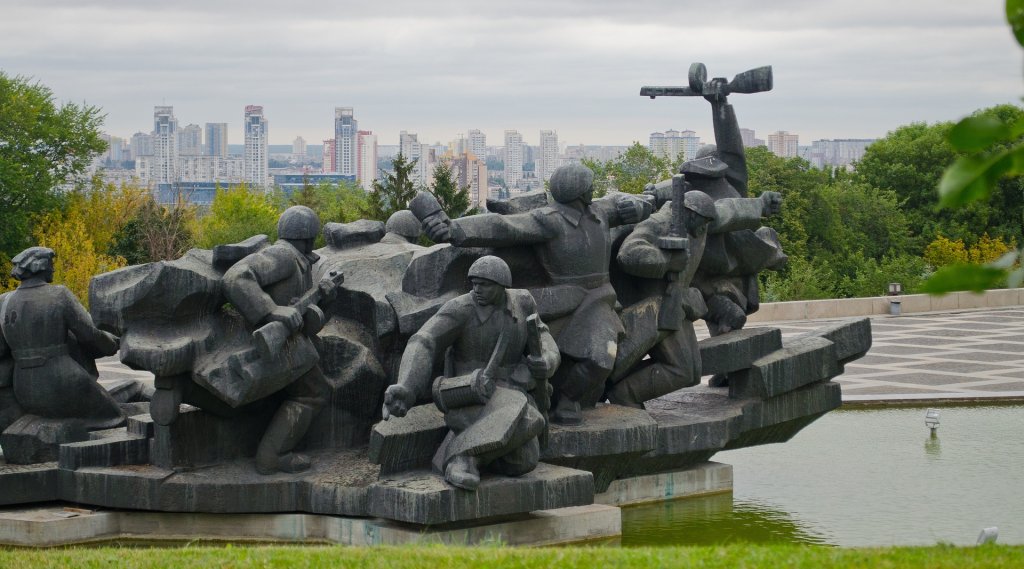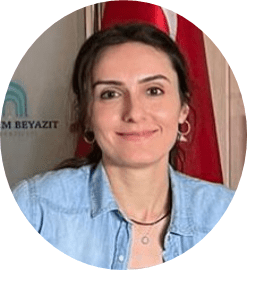
It has been eight months since Russia’s war on Ukraine. In its new strategic concept, NATO defined Russia as ‘the most significant and direct threat’ and decided to increase the number of its troops from 40,000 to 300,000 along its eastern flank. Germany raised its defense spending above 2 percent of its GDP. The European Union (EU) announced granting candidate status to Ukraine and Moldova. Moreover, Finland and Sweden are preparing to become new members of NATO. All of these developments have been triggered by the current aggressive policy of Russia in Ukraine. So, how did Russia get to the point? And why did not Russia’s previous military interventions, in Georgia in 2008 and in Crimea in 2014, give this motivation to the West?
Russian intervention: From Georgia to Crimea
The recognition of the independence of Kosovo (under UNSCR 1244) by the US and the majority of EU member states, and NATO’s 2008 Bucharest Summit, where the alliance promised that Ukraine and Georgia would someday become members of NATO, have been important catalyzing events for Russia’s military intervention in Georgia in 2008. One year later, although the reset policy between the US and Russia focused on arms control, and cooperation in Iran and Afghanistan, disagreements over the European and post-Soviet region security continued. Consequently, emergent conflicts in eastern Ukraine and the Russian annexation of Crimea in 2014 caused a serious deterioration of relations between Russia and the West. Yet, the annexation of Crimea by Russia in 2014 also marked the first territory seizure since the end of the Second World War. As a result of the diplomatic efforts of France and Germany primarily, the Minsk Protocol was signed on 5 September 2014, aimed at ending the existing conflicts and finding a political solution in eastern Ukraine. It, however, failed to resolve the conflicts because it offered the special status of districts of Donetsk and Luhansk oblast. Thus, contrary to these diplomatic efforts, the EU, and the US have responded to these moves of Russia by imposing economic sanctions on Russian companies and oligarchs beginning from 2014 until today. Despite all of these economic sanctions, Russia initiated another military intervention in Syria on behalf of Syrian President Bashar al-Assad in 2015 and on February 24, 2022, launched a military operation against Ukraine.
Russia started to build up military forces closer to its Ukraine border for training purposes during the spring of 2021 and increased the number of its military personnel over 90.000 in western Russia during the 2021 autumn. On 1 December, the US Secretary of State Antony Blinken during his visit to Europe warned that ‘if Russia invades Ukraine, Washington will be prepared to act’. A few days later, the Washington Post published an unclassified US intelligence document, which warns that the number of Russian forces has been extremely increasing near the Ukrainian border. Meanwhile, Russia insisted to demand a legally binding security guarantee that Ukraine will not join NATO sooner or later in the future. On 17 December, the Russian Ministry of Foreign Affairs published unilaterally a draft of an agreement titled ‘Agreement on measures to ensure the security of Russia and member states of the NATO’, which states that ‘the parties should not conduct any military activity on the territory of Ukraine as well as other states in Eastern Europe, the South Caucasus, and Central Asia’. However, NATO rejected the Russian demand and emphasized that all states have a right to decide on their own futures. From November 2021 to February 2022, Russia’s military buildup near the Ukrainian border did not come to an end. On 21 February, Russia declared the independence of the Republics of Donets and Luhansk and announced its withdrawal from the Minsk Protocol. On 24 February, it launched a “special military operation” with the purpose of denazification and demilitarization of Ukraine.
Russia and Changing Balance of Power in Europe
From a neorealist perspective, one can argue that the relative decline of the West’s actual power allowed for Russia’s aggressive policy. Consequent military interventions of Russia in Georgia, Crimea, and Syria occurred at a time when there were different voices in NATO, the US, and EU member states. Moreover, the Trump administration deepened that crack by serving Russia’s foreign policy interests. Today, while the West has imposed economic sanctions against Russia, some European states, like Germany and Italy, have problems finding alternative energy routes. They are still the largest European consumers of Russian gas and are likely to face higher prices over the upcoming winter. Moreover, the emerging crises of runaway rate of inflation and costs-of-living in several European states, and a possible Trump comeback in the US, are expected to erode the support for Ukraine in the West.
The Ukraine war has led to a change in the balance of power on the European continent. It has brought up the issue of Europe’s security again. Against whom will this security be provided and who will provide it? For now, Russia has played the role of an international scapegoat, but it does not mean that Russia will not become a ‘European’ again. At the Munich Security Conference, a week before the Russian military intervention, German Chancellor, Olaf Scholz was asked ‘whether Russia will be identified closer to China if it invades Ukraine?’. Scholz’s answer was that ‘there are also disagreements between Russia and China’. Eventually, Russia does not seek to create an alternative international system, but provides the consistent application of the balance of power that was established after the end of the Second World War. A potential conflict between China and Russia in Siberia or Central Asia is likely to make Russia a European stakeholder in the international system again.
Although personal and ideological explanations about Russia- Ukraine war are not wrong. However, I argue that structural realism can provide more explanatory arguments. Beyond Russian President Vladimir Putin’s psychological breakdown, the reason why Russia invaded Ukraine, the global reactions to the war, and the current situation have led us to think about the international power structures. Kenneth N. Waltz, in his work, Theory of International Politics (1979), claimed that the structure of a system changes with changes in the distribution of capabilities across the system’s units, that is the states, and changes in the structure also change how the states will behave. As the structure influences states’ behavior, the system will tend to restore a disrupted balance of power. Thus, I argue that the invasion of Ukraine has accelerated changes in the distribution of capabilities across the states, particularly in Europe.
Make Europe Balanced Again
We live in a world where the 1990’s era of liberal victory has faded due to the 2008 financial crisis, the Trump administration in the U.S., the Covid-19 pandemic, and lastly Russia’s war on Ukraine. This international structure, which is anarchic, nuclear, and multipolar forces states to look to their own resources to ensure their security. The quest for rearmament and energy independence in Europe against Russia has reminded us that it will continue to do so. During Russia’s invasion of Ukraine, we’ve also seen that the aim of Ukraine’s demilitarization, for Russia, has shifted to Ukraine’s territorial gains. The war has as another reminder of the importance of spheres of influence among the great powers, although the mutual destruction in the nuclear age constrains the great power war. Thus, as seen in Europe, the change in the distribution of power may continue to show its reflection in different regions, such as Central Asia. Since different states tend to act in similar power positions, the distribution of power in Europe is likely to be balanced with the rise of China.

Büşra Bayramoğlu , Ankara Yildirim Beyazit University
Büşra Bayramoğlu is a PhD candidate at Ankara Yildirim Beyazit University, Department of International Relations. She holds an MA degree in Caucasus Studies from Ankara Yildirim Beyazit University and BA in International Relations from Gazi University. Her research currently focuses on the Realist IR theory, great power competition, international order, and international security.
To cite this work: Büşra Bayramoğlu, “Russia’s War on Ukraine: A Structural Realist Perspective on the Changing European Security”, Panorama, Online, 28 November 2022, https://www.uikpanorama.com/blog/2022/11/28/bb/
Copyright@UIKPanorama. All on-line and print rights reserved. Opinions expressed in works published by the Panorama belongs to the authors alone unless otherwise stated, and do not imply endorsement by the IRCT, Global Academy, or the Editors/Editorial Board of Panorama.

